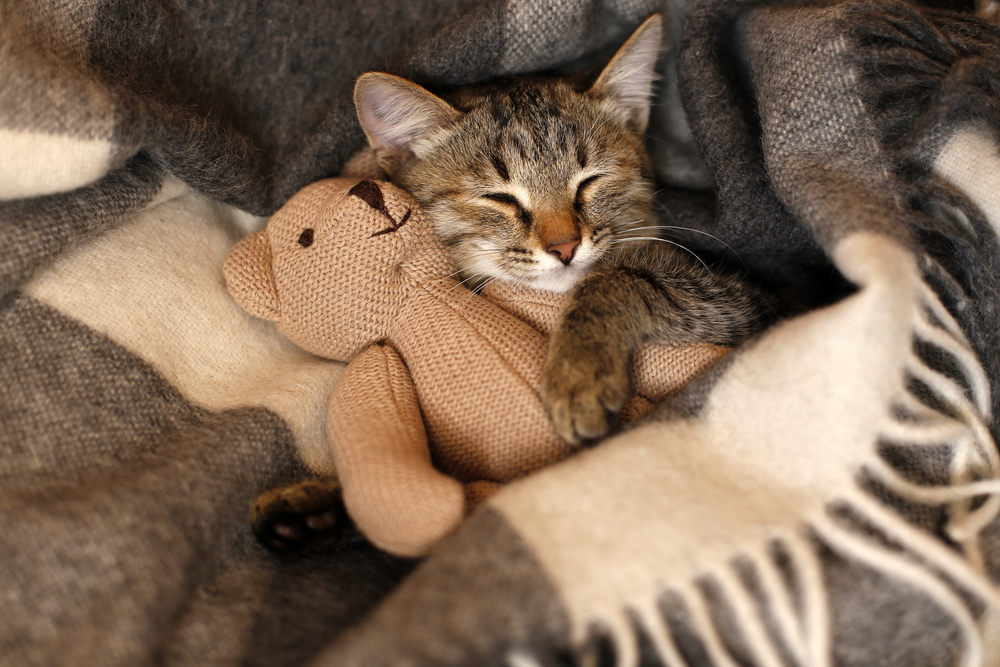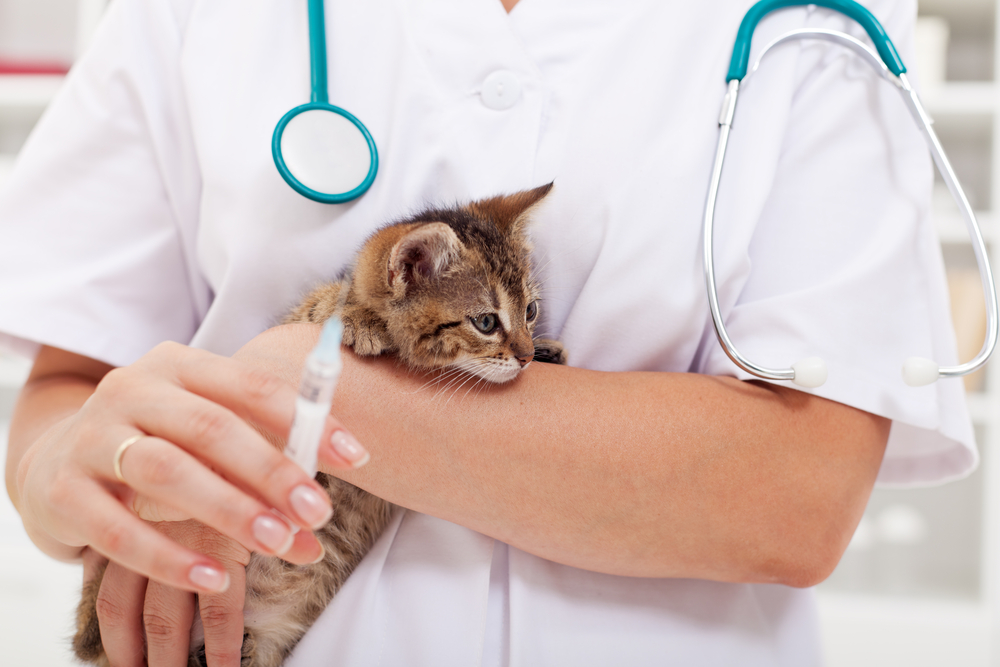Welcoming a kitten into your home is exciting, but it brings the critical responsibility of ensuring your new furry pal’s health. Vaccinations are the foundation of kitten care, because they protect them from widespread and potentially life-threatening diseases. The Westerville Veterinary Clinic team shares everything new and experienced cat owners need to know about kitten vaccinations.
Why do kittens need vaccines?
Kittens obtain temporary immunity against many diseases from colostrum, which mother cats (i.e., queens) produce in their milk shortly after giving birth. Unfortunately, this protection wanes over several weeks, leaving kittens vulnerable to infectious diseases. Vaccination helps to stimulate the immune system to produce new and lasting antibodies against specific diseases. However, maternal antibodies can interfere with new antibody development, and kittens need multiple vaccinations in a series rather than a single dose.
Which diseases do kitten vaccines protect against?
Kitten vaccinations protect against the following diseases:
- Feline viral rhinotracheitis — This respiratory infection is caused by feline herpesvirus type 1, a highly contagious virus that infects nearly all cats. Vaccination does not prevent infection, but can significantly reduce its chronic effects.
- Feline calicivirus — This is another highly contagious respiratory infection that can cause oral ulcerations, pneumonia, or—in rare cases—fever, lameness, or death.
- Feline panleukopenia — Also known as feline distemper, panleukopenia in cats acts similarly to parvovirus in dogs. The virus attacks the gastrointestinal (GI) tract, leading to severe vomiting, diarrhea, and dehydration, and suppresses the immune system. This combination often causes death in untreated cats.
- Feline leukemia virus — FeLV is a retrovirus, which means that cats are usually infected for life after a single exposure. The virus weakens the immune system and can lead to cancer or immunodeficiency, predisposing affected cats to secondary infections.
- Rabies virus — Rabies attacks the neurological system in cats and other mammals, including humans. Rabies vaccination is highly effective and required by law for cats to protect public health.
How kitten vaccines work
Vaccines contain partial, weakened, or killed versions of disease-causing agents that prompt the immune system to recognize the target organism as foreign and that the system must produce antibodies to fight the imposter. The initial immune response to many vaccines is weak, but additional doses prompt a faster and more robust attack. When the kitten is exposed to the actual organism, their immune system remembers how to fight back and swiftly neutralizes the offending invader. Some vaccines completely or nearly completely prevent infection, while others reduce infection severity and spread.
Kitten vaccination schedule
Kittens require a vaccine series beginning around 6 to 8 weeks old. We recommend that kittens return every three to four weeks for vaccine boosters until they reach 16 to 20 weeks. Additional vaccination visits are necessary at 6 months and 1 year of age.
While schedules vary depending on the kitten’s age at first vaccination, a typical vaccination schedule includes:
- FVRCP — This combination vaccine contains feline viral rhinotracheitis, feline calicivirus, and panleukopenia viruses. Administration in intranasal or injectable form starts at 6 weeks of age and is repeated every three to four weeks until the kitten reaches 4 to 5 months. Because some cats may still have maternal antibodies at 20 weeks, an additional vaccine is recommended at 6 months of age. Boosters should be given at 1 year of age and then every three years.
- FeLV — Feline leukemia virus vaccination requires two doses, three to four weeks apart, starting when the kitten is at least 8 weeks old. The vaccine is boosted in all cats at 1 year of age and is then recommended every three years only for cats at high risk of exposure.
- Rabies — Rabies vaccinations require only one dose in cats 16 weeks or older and then boosters every one to three years.
Vaccine reactions in cats
Although uncommon, kittens may experience mild vaccine reactions, such as lethargy or soreness at the injection site. Allergic reactions also are rare in cats but could include vomiting, diarrhea, facial swelling, hives, or collapse. The most significant vaccination risk in cats is cancer development at the vaccination site or vaccine-associated sarcoma. These tumors are unlikely to occur with feline-specific vaccines, but pet owners should keep close tabs on vaccination sites and report any new lump or bump near the site to our veterinary team.
Vaccination is a critical component of preventive healthcare for kittens. Contact the Westerville Veterinary Clinic team to schedule your kitten or adult cat’s routine vaccination visit, or if you have questions about kitten vaccination requirements and schedules.







Leave A Comment